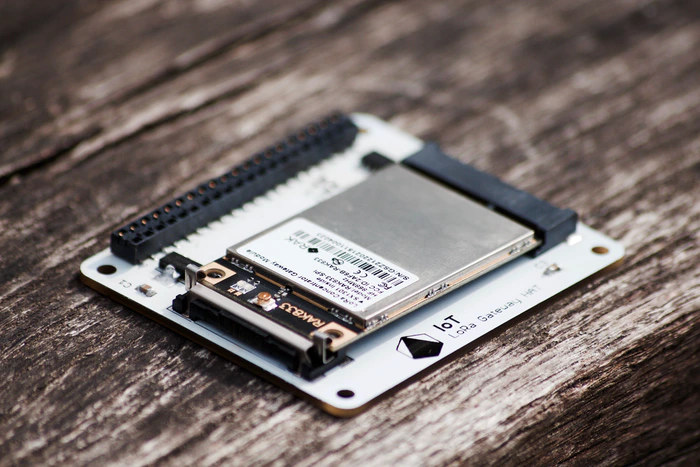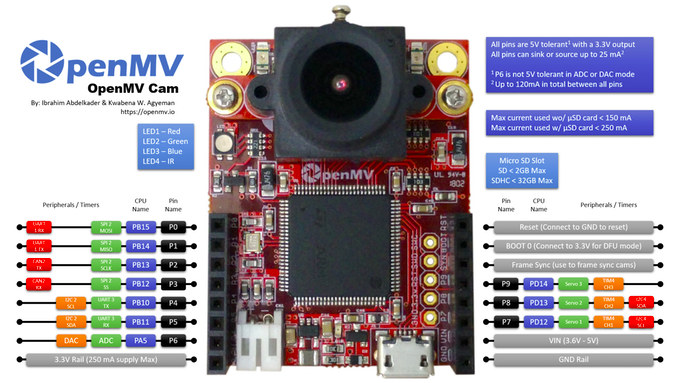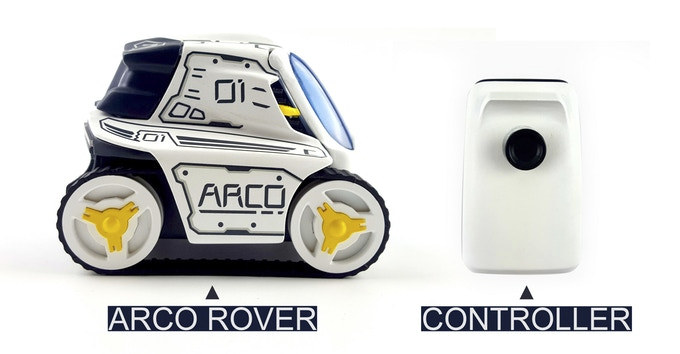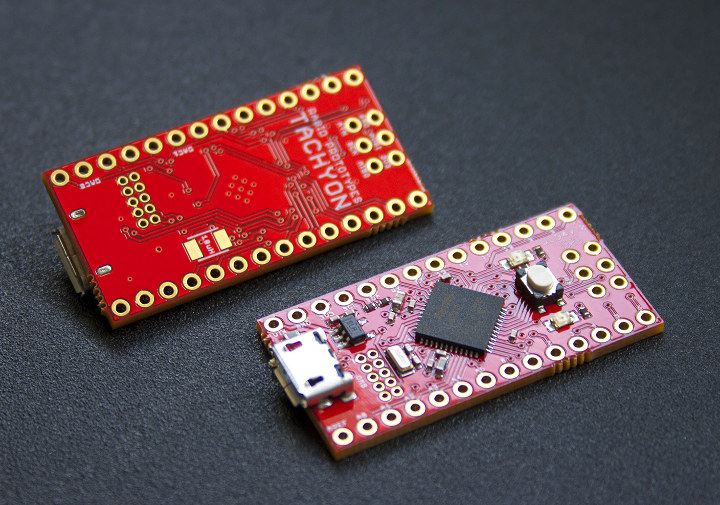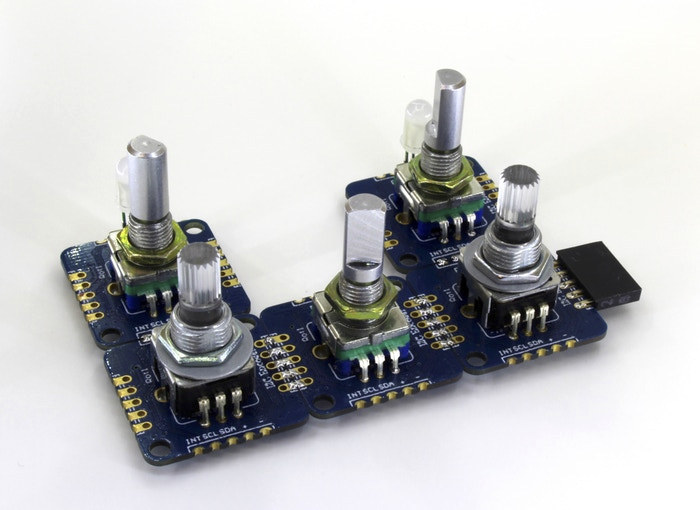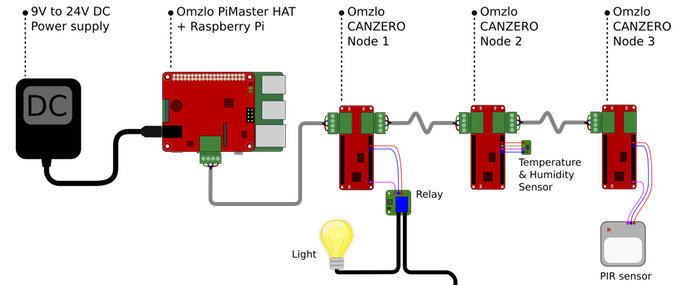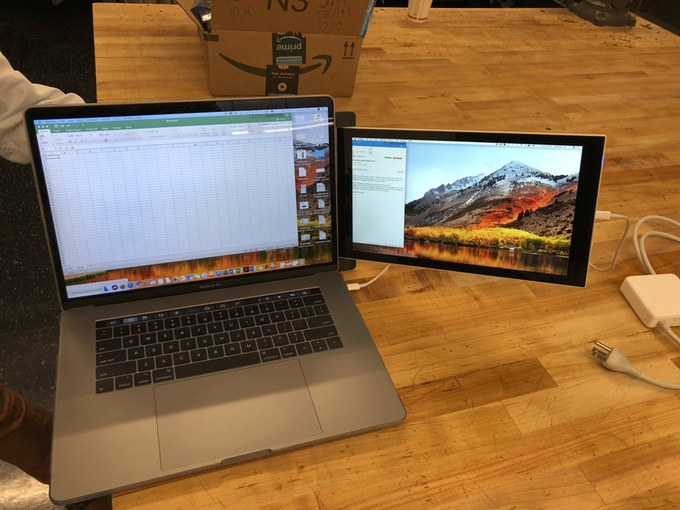We’ve already covered plenty of LoRa boards or solutions designed for nodes or gateways such as TTGO T-Beam ESP32 + LoRa board, RAK Wireless RAK811 GPS Lora tracker board, MatchX Matchbox LoRa gateway, and many others,, but Pi Supply offers yet more options with LoRa node and gateway add-on boards designed to work with Raspberry Pi, Arduino, and BBC Micro:bit boards. Pi Supply LoRa Gateway HAT for Raspberry Pi The IoT LoRa Gateway HAT is based on RAK Wireless RAK833 mPCIe LoRa gateway concentrator module and connects to Raspberry Pi 3 B/B+ board via the 40-pin header. There are two hardware version using 868 MHz or 915 MHz frequencies, but as we’ve seen in previous reviews those are configurable for other frequencies such as AS923 or IN865. Pi Supply IoT LoRa Node pHAT for Raspberry Pi LoRa Node pHAT is designed for node specifically, and with a smaller form factor […]
OpenMV Cam H7 MicroPython Machine Vision Camera Launched on Kickstarter
OpenMV team has launched an upgrade to their popular OpenMV CAM M7 machine vision camera, with OpenMV CAM H7 replacing the STMicro STM32F7 micro-controller by a more powerful STM32H7 MCU clocked at up to 400 MHz. Beside having twice the processing power, the new camera board also features removable camera modules for thermal vision and global shutter support. OpenMV CAM H7 camera board specifications: MCU – STMicro STM32H743VI Arm Cortex M7 microcontroller @ up to 400 MHz with 1MB RAM, 2MB flash. External Storage – micro SD card socket supporting up to 100 Mbps read/write to record videos and store machine vision assets. Camera modules Omnivision OV7725 image sensor (default) capable of taking 640×480 8-bit Grayscale / 16-bit RGB565 images at 60 FPS when the resolution is above 320×240 and 120 FPS when it is below; 2.8mm lens on a standard M12 lens mount Optional Global Shutter camera module to capture […]
ARCO is a Real Robot that Lives in Virtual Worlds (Crowdfunding)
Hicat launched HICAT.Livera machine vision board for robotics projects on Kickstarter two year ago. The company second project is still related to robotics and machine vision, but geared towards a different target audience, as ARCO robot aims to offer an augmented reality gaming experience to kids, although it’s still hackable/customizable as we’ll see below. The hardware part is mostly comprised of ARCO ROVER robot, and a Bluetooth controller that can be stored in ARCO’s inner capsule, where it recharges and communicates with ARCO through a magnetic pogo connection joint. The listed specifications are rather limited: ARCO ROVER Bluetooth connectivity (nRF52 WiSoC) 10 RGB LEDs Battery – Good for about one hour Power Supply – Via USB type C port Dimensions – 8.9 x 7 x 6.5 cm Weight – ~180 grams Controller Bluetooth (nRF52) Sensor – 3-axis accelerometer for motion detection Trigger and rocker Battery – Good for about one […]
Tachyon Arduino Zero Compatible Board Features Microchip SAMD51 Arm MCU @ 120 MHz (Crowdfunding)
Most Arm based Arduino compatible boards come with a Microchip SAMD21 Arm Cortex-M0+ MCU clocked at up to 48 MHz since this is the microcontroller found in the official Arduino Zero and MKRZero boards and comes with proper support in the Arduino IDE. But last year, Microchip introduced SAMD5x Arm Cortex-M4 microcontroller family which offers devices that are pin-to-pin compatible with SAMA2x microcontrollers but with better performance, and more memory and storage. So the guys at Rabid Prototypes decided to make Tachyon, a tiny Arduino Zero compatible board based on SAMD51 MCU for people wanting more oomph out of their Arduino board. Tachyon board specifications: MCU – Microchip ATSAMD51G18A Arm Cortex M4F @ 120 MHz with 256KB flash, 128 KB RAM I/Os Digital I/O pins – 14x w/ 12x PWM Analog input pins – 6x 12-bit ADC channels Analog output pins – 2x 10-bit DACs Operating voltage – 3.3V I/O […]
Connect Multiple Rotary Encoders to Arduino, ESP8266, Raspberry Pi, etc… with I2C Encoder V2 (Crowdfunding)
Rotary encoders are pretty common devices that convert the angular position of a shaft to analog or digital output signals with quadrature-encoded A / B pulses the most common way of reporting the position to the micro. So for each encoder you’d need 2-pin, and if your project use many of those you may quickly run out of pin, interrupts, etc… Simone Caron has decided to tackle this issue by creating an I2C encoder board, which works with various encoders, and whose second revision is now offered on Kickstarter. The I2C Encoder V2 board supports standard mechanical encoders, illuminated RGB encoders, and clickable rotary encoders, each of which may be with or without dent. The board also comes with 3 GPIOs following RGB LED footprint, but also usable as PWN, GPIO, or ADC, and each board’s I2C address can be configured with some soldering on A0 to A6 pins. Finally, […]
Tail it is a Family of WiFi & Cellular GPS Trackers for Things, Pets, and Bicycles (Crowdfunding)
We’ve previously written about Ping, a tiny Cellular GPS tracker that promised to last 3 months on a charge. The raising money part of the crowdfunding campaign itself was successfully with over one million dollars raised, but as with many such campaigns there have been delays, and some people still have to receive theirs, not to mention people complaining about poor battery life and other issues. But there seems to be another option now with Tail It Technologies now offering four different “Tail it” cellular GPS trackers (with WiFi too) for things, pets, and even one designed specifically for bicycles. The company has already sold their devices to thousands of customers in Norway, so they should be working, and on-time delivery should hopefully not be an issue. All four GPS trackers come with 2G, 3G, 4G, and WiFi connectivity, a 5-meter accuracy, and share the same electronics and firmware. Here’s […]
NoCAN IoT Platform Leverages Raspberry Pi & Arduino for CAN Bus Projects (Crowdfunding)
Many IoT projects rely on wireless connectivity through WiFi or Bluetooth, but in some cases it may be more reliable and convenient to use wired connectivity. The CAN Bus is a little like a low bandwidth Ethernet PoE solution for IoT, as it allows to transfer data over a serial connection while provided power at the same time, and can be daisy chain to support multiple boards. Omzlo’s NoCAN IoT platform provides a CAN bus solution leveraging Raspberry Pi 3 board through their PiMaster HAT acting as a CAN bus gateway, and Arduino compatible CANZERO boards to which you can connect sensors and actuators. Omzlo PiMaster HAT specifications: MCU – STMicro STM32F042 Cortex-M0 32bit ARM MCU – 48Mhz. Networking – 125000 bps CAN bus up to 300 meters range GPIO – Communicates with Raspberry Pi through SPI + GPIOs Security – Smart power switch with over-current protection. Power Supply – […]
Dual Display Laptop Made Possible with DUO Add-on Display (Crowdfunding)
I’m using a dual monitor setup at home since it’s just more convenient and increases productivity, but when I’m on the go, I have to revert to the single screen on my laptop. The guys at Mobile Pixels decided it was not good enough, and worked on providing a solution that allows you to take that dual display setup on the go. This gave birth to DUO, a screen that attaches to the back of your laptop, and that you can slide to the left or right of your laptop’s screen to add another display whether you may happen to be. DUO display specifications: Display Size & Resolution – 12.5″, 1920×1080 pixels Rotation – 270º full rotation, 180° presentation mode Connection – USB type C for power and video signal Power Consumption – 1.6 Watts; 0.3W in “rest mode”. Dimensions – 32.5 x 21.8 x 1.2 cm (ABS plastic) Weight […]


